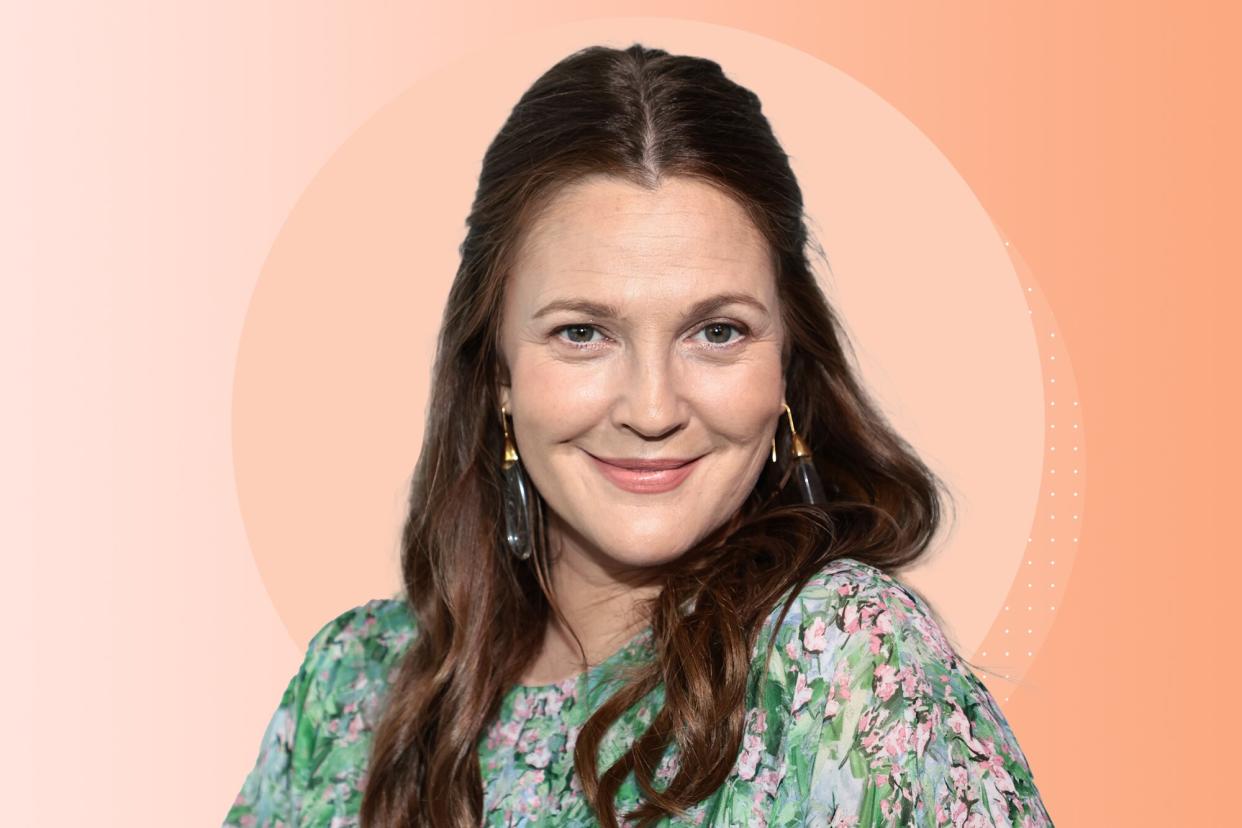Drew Barrymore Says That Going Alcohol-Free "Has Been One of the Most Liberating Things in My Journey of Life"

Jamie McCarthy/Getty Images
As long as you aren't pregnant, don't have addiction or intolerance issues and enjoy drinking a glass of wine, beer or cocktail every so often, there can be some legit health benefits of drinking in moderation.
But there's also a mounting body of scientific evidence that backs up the very real gains you'll score from drinking less—or abstaining entirely. Whether you opt for a 30-day challenge like Sober October or Dry January, or even just adjust the serving vessel to drink less when you do choose to imbibe, these small steps can help move the needle to improve your health. The benefits of drinking less (or not at all) may help you lower your blood pressure, reduce your risk for cognitive decline, slash the chances you may develop a dependency issue or addiction in the future, score more restful sleep and save loads of money.
And there's also a growing group of people who swear by a "mindful drinking" lifestyle, who deem themselves "sober curious" or have totally stopped drinking. Drew Barrymore is one of them, and her decision to stop drinking alcohol around 2019 has been "one of the most liberating things in my journey of life," according to an essay penned by the actor and talk show host in the latest issue of her magazine, Drew. (That holiday-themed issue is deemed the "Big Warm Hug Issue," by the way.)
"One of the bravest things you can do is slay those dragons and finally change an awful cycle in which you've found yourself stuck," Barrymore continues, according to Entertainment Tonight. "For me, it was to stop drinking." This shift has allowed her to remove herself from "the torture of guilt and dysfunction," she adds.
Related: 5 Healthy Rituals to Replace Your Nightly Glass of Wine
Despite a growing market of low-alcohol and nonalcoholic beers, spirit-free mixed drinks and NA wines—and all of the aforementioned challenges and drinking trends—Barrymore isn't alone with her complex relationship with alcohol. About 1 in 4 Americans 18 and older reported that they had been binge drinking in the last month, according to a 2019 national survey by the National Institute on Alcohol Abuse and Alcoholism. Nearly 5% of those 12 and older who completed that same survey met the criteria for alcohol use disorder. (ICYMI, AUD involves drinking to a level that impacts quality of life—and an impaired ability to control alcohol use or stop alcohol use in light of its negative impact on an individual's work, health or social life. This can include alcohol dependence and alcohol addiction.)
This isn't the first time Barrymore has opened up about her sobriety journey. More than two years into her alcohol-free lifestyle, during a CBS Mornings interview that aired in December 2021, Barrymore said that alcohol "was something I realized just did not serve me and my life." She didn't share more at the time, instead noting that "I've been very private about a lot of my struggles."
Despite her challenges, Barrymore admits that she "wouldn't change a thing" about her past. Barrymore said in a 2021 interview on the YouTube show 4D with Demi Lovato, "That younger person really got an understanding how it can really all go 'poof' ... I'm so happy, and loved, and scared of my life being any different."
Related: How to Turn Any Cocktail into a Mocktail
Beyond subtracting alcohol from her life, Barrymore has been making a concerted effort lately to add more self-care. Leading up to the busy and often-stressful holiday season, Barrymore encourages her fans to do the same: "During the holidays, when we spend so much energy trying to measure up to the picture-perfect standards set by the Norman Rockwells of the world, I'd like for you to try to remember to give yourself a pass—a hug, as it were—and I will try too," she says in the essay. "Take a moment, take a breath and give yourself a squeeze. We're all just doing our best out here. And that in and of itself is something to celebrate."
For more information on drug and alcohol addiction or to get help 24/7, reach out to the free and confidential Substance Abuse and Mental Health Services Administration hotline at 1-800-662-HELP (4357).

